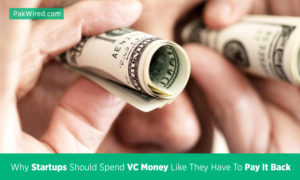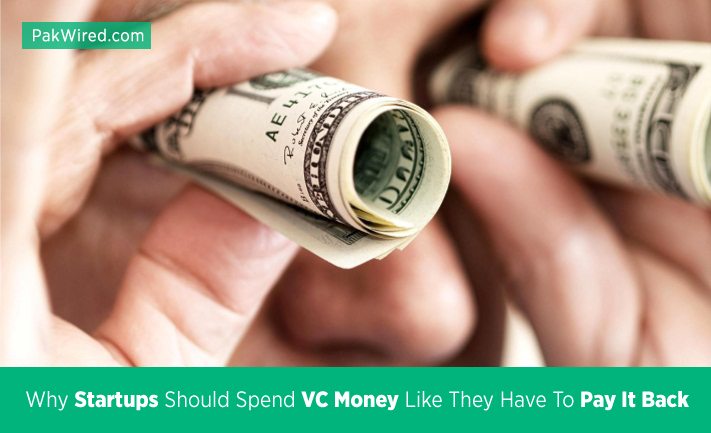Do you want some free money? That would be great. All you need is a venture capitalist or an angel investor to swoop down and make you rich with a US$3,000,000 cash injection. You can blow the money on Xbox consoles, office perks and supporting a burn-rate that would make Emperor Nero’s pyromania look harmless.
That’s a dramatic version of the fantasy. But I don’t know if it’s too far off the way many would-be founders think about venture capital. I’ve spoken to a lot of entrepreneurs, and worked with some of them, who believe in this dangerous concept. It’s almost as though VC funding is viewed as profit, rather than an investment.
I saw a tweet from Chris Sacca the other day that hit the nail on the head.
Founders: if you decide to start over again in a brand new space, your investors should be offered the chance to take their money back.
— Chris Sacca (@sacca) January 14, 2016
Chris is preaching something that I think is crucial. When you take investment for your business, you shouldn’t consider it to be free money. You shouldn’t think of it as a gift. Investors aren’t the national lottery, and you didn’t win it anyway.
I started thinking about the mindset and the attitude towards spending that Chris is referring to.
Thinking that the funds are yours to do whatever you please with is unhealthy for you, detrimental to your company and dishonest to your backers. They’ve funded your business with the understanding that you’ll use the money to grow your company and enable them to receive a return on their investment.
They haven’t funded you because Mama needs a new air hockey table.
Imagine, for a moment, that you were going to do something that’s not sexy and start a small business. A shop on the corner, a lawn mowing service. Or my favourite example, a sandwich cafe.
Photo credit: Ian Baldwin
The first step wouldn’t be seeking investment. If there was money required, the first step would be an old school, interest accruing, unforgiving bank loan or money from your closest family members.
In the first case, you would sign a contract, and commit yourself to paying back a loan of several thousand dollars, whether your business sinks or swims. In the second, you’d take money from people who worked hard their whole lives to earn and save. And you’d take it hoping that you’d be able to pay it back someday.
Those are tough propositions, but they’re normal. This is what people who run small businesses generally have to do. And for a lot of people, it succeeds. They work their ass off, manage their funds responsibly and pay down their debt. It’s a matter of spending cash where it’s most necessary, managing cash-flow and maintaining a certain level of frugality.
Because the small business entrepreneur, with a loan from Big Bad Bank or her Mum’s retirement fund, understands that sooner or later, she’s going to need to pay every cent back, with interest.
As a startup founder, if you do have funding for your business, you should treat that cash the same way. Treat it like a loan that you have to pay back. Spend it like every cent is going to cost you twice. You’ll be better off being able to prioritise your expenses. You might even cut down on your burn-rate and extend the life of your startup.
But you have to spend money to make money!
Absolutely. But you don’t need to spend it like a drunk sailor on shore-leave. If you want your business to run lean and mean, spending sensibly is the right way to go. The lower your overheads, the lower your capital spend, and the healthier your business is going to be.
How can I hire the best talent without burning cash?
Do you really want to hire a genius level developer if it means bankrupting your business? Or would you rather hire a talented, hardworking developer who has the skills you need and the drive to learn more, who is joining your company because they genuinely want to work there?
Hint: there’s only one right answer.
My investors won’t ask for their money back. So why act like they will?
Because at the end of the day, if you succeed and become profitable, you’ll have cash in the bank. If you fail and run out of cash, it won’t happen overnight, and you can sustain yourself longer. Plus, you’ll earn the respect of your investors if you can demonstrate that you used their capital with some degree of mindfulness.
This kind of approach to startup capital isn’t fun. It’s far from cool. It ain’t sexy. You won’t be featured on TechCrunch Cribs, and a slide and an Android-powered robotic slushie machine won’t be at the top of your shopping list.
But you’ll have a better shot at turning your business into an ongoing profitable company with longevity. There is no better outcome for a company than that.
Article via: techinasia. Image via: Shutterstock



